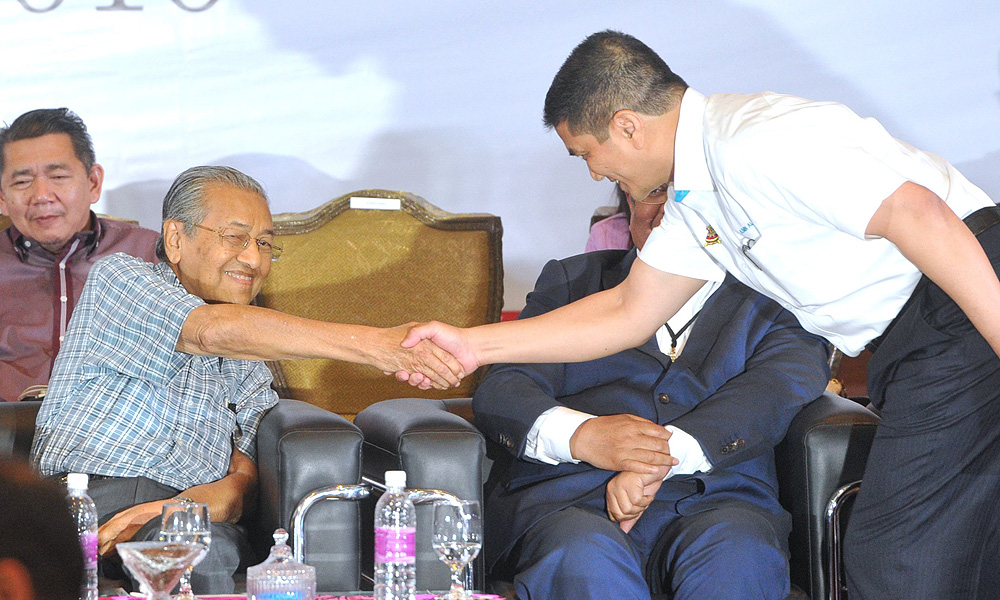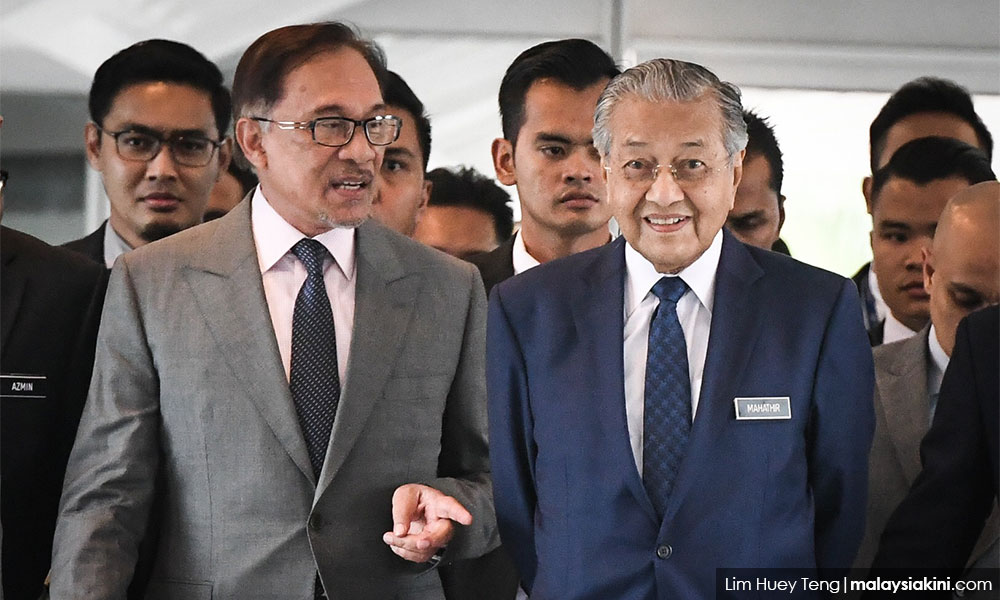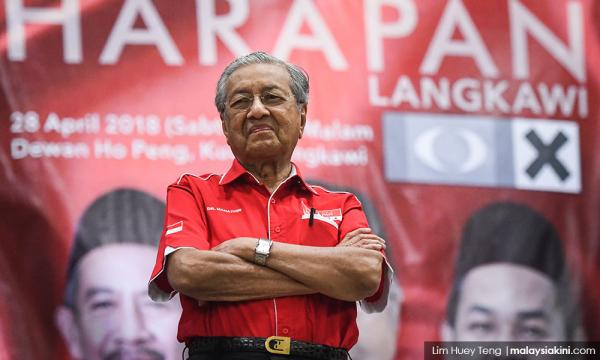COMMENT | The past 48 hours have been remarkable, even by the standards of Malaysian politics. There now seem to be plans afoot to create a new ruling Pakatan Harapan coalition, split and weaken PKR, and stop Anwar Ibrahim from succeeding Dr Mahathir Mohamad as prime minister.
The catalyst for these moves appears to be the defeat of the Harapan candidate in the Tanjung Piai by-election held last Saturday. The Harapan candidate not only lost to a candidate from BN – the opposition grouping that includes the former ruling party – but the margin of victory was more than 15,000 votes. BN’s Wee Jeck Seng obtained 25,466 votes while Harapan’s Karmaine Sardini came out in second place with only 10,380 votes.
Ordinarily, people don’t pay much attention to by-elections, but the huge margin suggests two things. Malays and Chinese both voted en masse against Harapan, the same voters who delivered the coalition victory just 18 months ago in the 14th general election, indicating deep unhappiness with the Harapan administration.
And second, Mahathir appears to have lost personal support among rural Malays, which had been key to Harapan’s victory last year when Bersatu, his new party, managed to secure about one-third of the Malay vote. The by-election proved that the rural Malay vote is well on its way back to the opposition.
The loss of Tanjung Piai has set off a political scramble. Suddenly everyone is saying the current Harapan model is “dead” and radical change needs to be made. The current Harapan coalition consists of the following: Bersatu, led by Mahathir; PKR, led by Anwar; DAP, led by Lim Guan Eng; and Amanah, led by Mohamad Sabu.
The three main opposition parties are Umno, with about 37 MPs; PAS, with 18 MPs; and GPS, with 19 MPs.
If the war drums coming out of Kuala Lumpur are to be believed, there are three potential scenarios that could unfold to radically change the political landscape. The cast of characters is as varied as a season of Game of Thrones, but the detail and mix of local acronyms at the heart of this speculation are important to relay.

First, Mahathir could move to neutralise Anwar by helping Azmin Ali, PKR’s deputy president and minister for economic affairs, “escape” from PKR and take with him about 20 PKR MPs. This will immediately cause PKR to shrink to about 30 MPs from its present 50. Anwar will be in no position to push for the transition of power. DAP, the predominantly Chinese party in Harapan, will have to keep quiet and go along if it wants to stay as part of the ruling coalition.
Second, a new “Harapan coalition”, with a new name, could kick out DAP and its 42 MPs. To replace them, Mahathir will entice a faction of about 15–20 MPs from Umno to join Bersatu, bringing Bersatu’s numbers up to about 41 MPs or more. He will also come to an understanding with PAS (18 MPs) that they will support him in staying on as prime minister. He will try to get GPS in Sarawak to also support him. (Note that PAS and GPS can carry on as opposition parties – all Mahathir wants is their support to be PM.)
Third – and this is the simplest scenario – the bulk of Umno, about 30 MPs, could simply join Bersatu as a bloc, either under a new party or a special arrangement, plus Azmin’s breakaway group of about 20 MPs. There is even a possibility that Azmin’s group will join these Umno MPs in setting up a new Malay party. DAP and what’s left of PKR will be kicked out of Harapan and a new Harapan will emerge.
Mahathir could, of course, go for the soft option and do a mini-cabinet reshuffle now. But this will not remove the tension between him and Anwar over the power transition issue. It will, at best, delay the inevitable clash between these two and prolong the current instability caused by the Tanjung Piai by-election. A cabinet reshuffle is simply a short-term band-aid.
Mahathir’s Malaysia 2.0
No matter which scenario you choose, two things are certain.
First, Anwar will not get his chance to be PM and he will be blocked by Mahathir, again. In 1998, Mahathir kicked Anwar out as the number two in Umno and his anointed successor. Since then, Anwar has been trying to become PM via alternative coalitions against BN, all ending in failure. It was only in 2018, when Mahathir became the leader of Harapan, that the opposition was able to take over the federal government. In other words, despite what people say about Anwar’s political abilities, it was Mahathir who was the crucial peg in Malaysia’s first regime change.

Second, the “Chinese” issue in Harapan is marginalised. DAP, which is the second-largest party in the current set-up, is either relegated or worse, kicked out of the coalition completely. This will stratify the Malay ground, who see the DAP as the main source of “anti-Malay and anti-Islam” policies in government. Although this is blatantly untrue, this perception is widely held by large sections of the conservative Malay population.
If there is going to a major change in Harapan, it will be a Malaysian tragedy. In simple terms, it means the regime change last year did not fundamentally alter the trajectory of Malaysian politics. For some time now, many people in the corridors of power have said last year's GE14 result was essentially an “elite-change”, i.e., a change of power from the Najib Abdul Razak group over to the Mahathir group. If you are unkind, you could say change from the Najib dynasty to the Mahathir dynasty.
In other words, Mahathir is no reformer. What he wants is power and what he intends to build is not “Malaysia Baru” (New Malaysia), but Mahathir’s Malaysia 2.0. He succeeded partially during his first tenure as PM (1981–2003), and this time he is dead-set on completing the job. The end process is that Harapan will eventually end up like the old ruling coalition, the BN.
I truly hope the rumours are wrong and we will not see a complete reconfiguration of Harapan. Malaysia deserves better.
JAMES CHIN is director, Asia Institute, University of Tasmania. The above first appeared in Lowy Institute’s The Interpreter.
The views expressed here are those of the author/contributor and do not necessarily represent the views of Malaysiakini.


